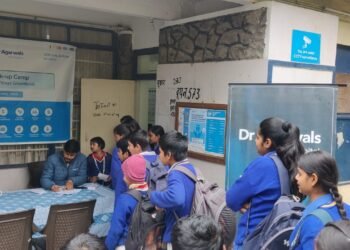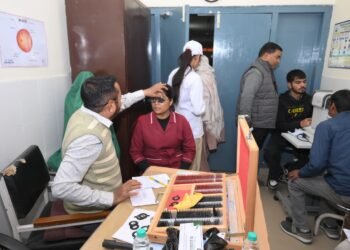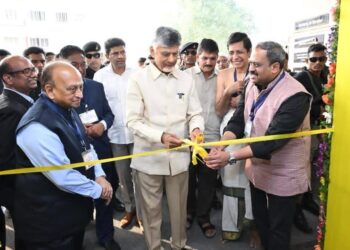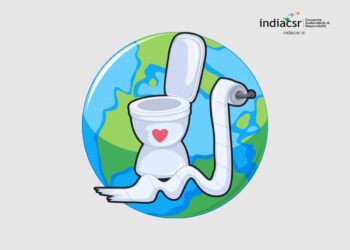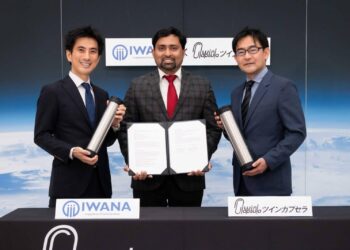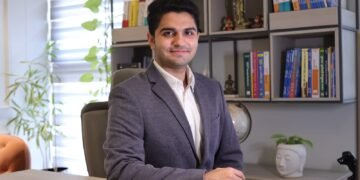At the prestigious Davos event, two notable campaigns, Harpic’s ‘Mission Swacchta and Pani’ and Dettol’s ‘Banega Swasth India‘, stood out for their focus on purpose-led business. A key highlight was an insightful interview with Dr. Shyam Bishen, Head of Healthcare at the World Economic Forum (WEF). This conversation delved into pressing healthcare topics like the rise of superbugs and the urgent need for next-generation vaccines.
NEW DELHI (India CSR): The discussion with Dr. Shyam Bishen at the World Economic Forum focuses on the critical issue of antimicrobial resistance (AMR), which poses a significant global health threat. Dr. Bishen highlights the alarming prediction that AMR could cause 10 million deaths annually by 2050, with a devastating economic impact of $100 trillion. He emphasizes the need for increased research and development in new antibiotics, citing a lack of incentives for pharmaceutical companies as a major obstacle.
The interview also addresses the misuse of antibiotics in healthcare and agriculture, contributing to the rise of superbugs. Dr. Shyam Bishen calls for global collaboration, involving public and private sectors, to combat this crisis through innovation, proper antibiotic stewardship, and public education.
Moderator: The World Economic Forum is an occasion for topics to take place across the board. We’re talking about artificial intelligence, the state of the global economy, the wars which are being fought in so many parts of the world. But healthcare is a topic which the WEF has looked at very, very closely.Dr. Shyam Bishen, who joins me now heads at the center for Health and Healthcare at the World Economic Forum. Thanks very much, sir, for being with us. You know, one of the key themes that you are looking at this time is bad bugs, no drugs, and a world without antibiotics. And that’s so critical. Could you share with us a basic understanding of how superbugs represent a huge threat?
Dr. Shyam Bishen: Absolutely. First of all, thank you for having me on your show, Vishnu. Antimicrobial resistance has become a huge problem right now. It’s one of the biggest killers for human beings. Close to 1.3 million people die every year from AMR, antimicrobial resistance. We expect that this would be much higher as we move forward. Actually, according to some of the predictions from WHO, World Health Organization, by 2050, if we don’t do anything, there will be 10 million deaths every year. So that’s a huge number of lives lost because of Amr.
Economic cost is also predicted to be much higher. By 2050. We are looking at a cumulative loss of $100 trillion. So it’s a huge impact both on our lives as well as on economy. World Economic Forum has launched an initiative, actually, it’s a global future council, where we are working on some of the development areas for this. We are working with G seven G 20 groups of governments.
I was just there in Rome last week meeting with the italian health minister to discuss this issue. I was so glad to see that G 20 has taken AMR as one of the three key health agenda for this year under the presidency of italian government, because this is an issue that must be tackled now, must be handled now. Sure.
And government, public sector has a big part to play in this. Of course. We will work with private sector, we will work with pharmaceutical companies to develop proper drugs that are effective against resistance bacteria. But public sector has a big part to play here.
Moderator: But it’s a basic question. We’ve made so much progress in the pharma industry across the board. Just look at Covid and the fact that we were able to roll out vaccines in a record period of time. Yes. Is there a lack of research in developing a new generation of antibiotics against Superba? Yes, there is a lack of research. Why is that?
Dr. Shyam Bishen: It’s a lack of incentives. This is a slow moving thing. It’s not like a pandemic that’s here and now, and you need to respond to that. So the governments and the public and private sector, they don’t realize this as a huge issue right now. It’s something that’s slowly developing and it’s coming over a period of time. I think there are lack of incentives for biotech and pharma companies to develop these drugs. There needs to be both pull and push incentives for this.
Now. There are organizations like Bill and Melinda Gates foundation, welcome Trust, nonprofit organizations, Novo Nordisk foundation, who are putting emphasis on this. They are catalyzing research, they’re putting some funding behind it. But we need to do more. We need to make sure that governments are putting some incentives behind this. We need grants, we need some kind of funding for RND, but also for pharma companies to recoup their investment, to get good ROI.
They need to make sure that there is a good market out there. Sure. And that’s where I think the governments can come in and they can put in some kind of advanced market commitment. So that that shows an incentive for a pharma company to develop this drug. Yeah. As you know, the drug development is a long process, expensive process.
There must be a good return on that investment for pharma companies and biotech companies to get really interested in this. So there is definitely need to do more in that area.
Moderator: Why are super drug, I mean, these drugs, superbugs, I should say very frequently hospital borne?
Dr. Shyam Bishen: Yes, because you see all kinds of pathogens, viruses there, existing there for a longer period of time that develop resistant to bacteria, which is really dangerous for people going to the hospital. Obviously it causes more mortality because you can’t treat superbugs. It extends hospital stay, it increases overall health cost. But I think over a period of time, hospitals can act as an incubator for pathogens and for viruses and for microbes to develop long term resistance.
Moderator: Dr. Vishan, in India, we have a nasty habit of popping antibiotics like they were candy, getting better all of a sudden, ending a course after popping one tablet and then moving away. How is this part of the problem?
Dr. Shyam Bishen: This is a huge part of the problem. We call it a bad stewardship, if there is such a thing. I think all of us working in the healthcare arena, especially our physicians, our doctors have to do a better job of, first of all, not prescribing antibiotics where it’s not needed. Secondly, making sure that they educate their patients.
The public has the education that longer term use of antibiotics is going to be bad for them. They are going to develop resistance to those antibiotics and then they will be sick for a much longer period of time. Worse, they could die. So I think there needs to be a good education for public, so good education program. But it’s not just coming from our use of antibiotics, it’s also coming from use in agriculture, especially for animals that we eat. So from the agriculture industry, for chicken, for poultry, for fish, for cattle and other animals, there is a huge use of antibiotics.
Actually, 70% of the antibiotics are being used in the animal industry. Right, in the agriculture industry. And they find their way to our food system, they find their way to our overall, our bodies, our health system, and that’s creating a lot of problems. That is a big contributor to the AMR problem that we are having.
Moderator: So in the interim period is multidrug therapy, multi antibiotic treatment. The only way to fight superbugs, as it were. And it’s a hit and a miss, isn’t it?
Dr. Shyam Bishen: It is a hit and a miss, but unfortunately, we don’t have a super drug that can work against super bugs. So at this point, I would say that, yes, a multi antibiotic therapy is the only way you see that in case of tuberculosis, once you get a drug resistant tb, we use so many antibiotics to tackle that, which in itself creates problem, because over a period of time, then again, those antibiotics, they stopped working.
And then you can get into XTR TB, which is like nothing works, right. So we don’t want to go back to those dark cases where there were no antibiotics and simple infections used to kill human being, urinary tract infection, simple infections to die after that because there were no antibiotics. Right. So we must do a lot, much more to stop this emergence of new super bugs. And they are evolving. And they are evolving. That’s the one. They are evolving. Exactly. They are evolving. So more incentives, more funding needs to be put in in terms of RND.
And then on the other side, as you mentioned, we want to make sure that we do our part with a good stewardship so that we are not misusing antibiotics, whether it’s in our agriculture or it’s in our own therapy.
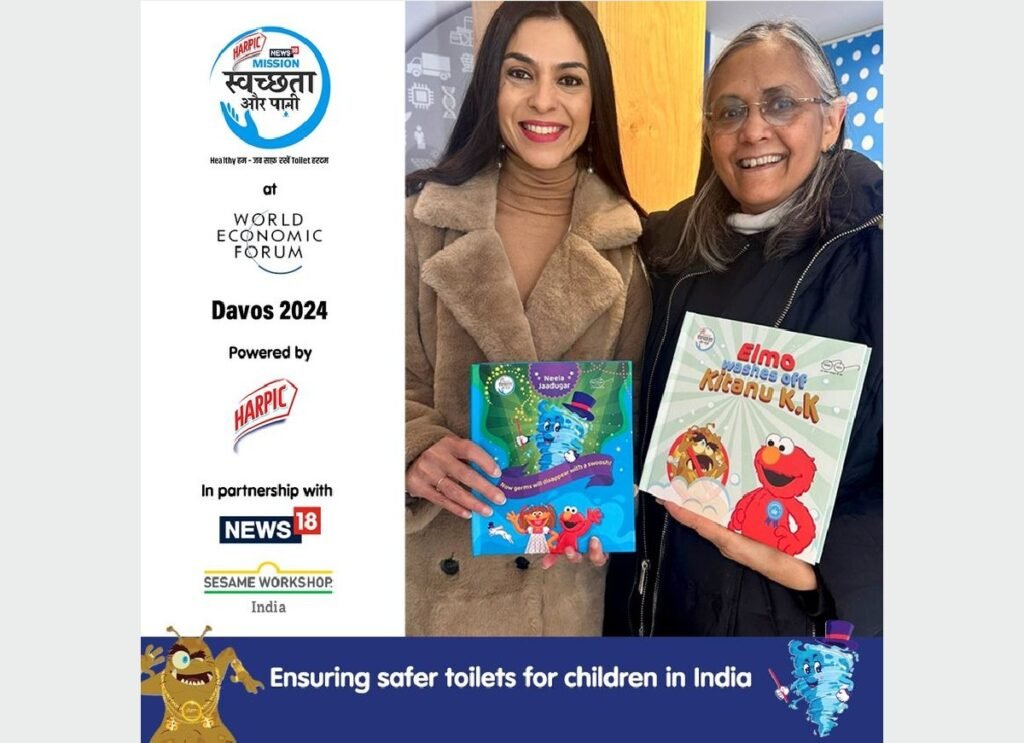
Moderator: Dr. Bishen, one last set of questions. We’ve been very closely associated with Banega Swasth India, for ten years, and among the many things that we’ve looked at is basic hygiene. How is basic hygiene across the world absolutely critical in improving the quality of lives of billions. And the number is billions?
Dr. Shyam Bishen: Yes. No, basic hygiene is absolutely critical here. That is a must, and we must educate the public on that front. We saw that during COVID during the pandemic time, how important that was. We must wash our hands at least 30 to 60 seconds with an antibacterial or antimicrobial soap. It takes time, so we have to make sure that we are using soap. We are using it properly. We’re using it at least 30 to 60 seconds. But basic hyzing, making sure that you are staying in a clean environment, keeping it clean, and then you wash your hands as often as possible. This antibacterial soap, that is absolutely critical.
Concluding Remarks
That’s one way you can avoid ingesting pathogens, bringing viruses to your own body system. Thank you very much. That is critical indeed. Thanks, Dr. Bishen, very much for speaking to us. A broad ranging conversation, but the conversation on antibiotics and a new generation of antibiotics, where is the funding going to come from? Where is the science going to become? Is going to come from? Where is, what about the role of governments? Absolutely critical. As we move to fighting next generation ailments, it is a constant concern.
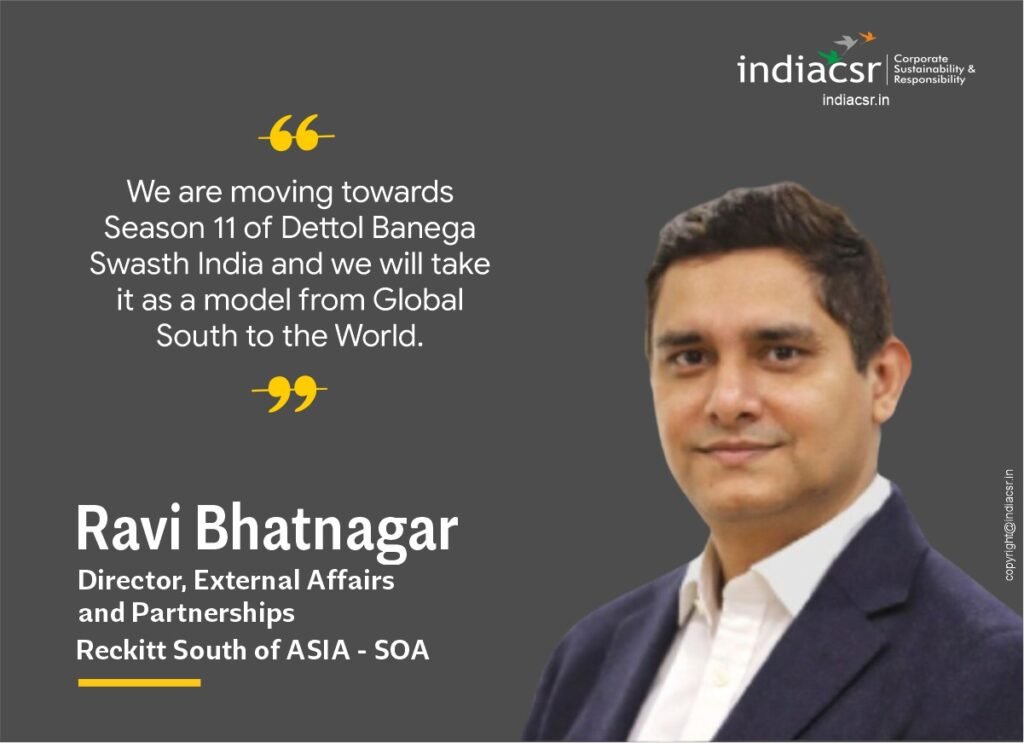
Dettol Banega Swasth India: Scaling New Heights in Global Health and Hygiene under Ravi Bhatnagar’s Leadership
Ravi Bhatnagar, the Director of External Affairs & Partnerships at Reckitt for the South of Asia-SOA, unveiled the progression into the 11th season of the ‘Dettol Banega Swasth India’ initiative. This marks a significant transition for the campaign, as it evolves from its roots in the Global South to a more expansive, worldwide approach.
Under Ravi Bhatnagar‘s guidance, ‘Dettol Banega Swasth India’ has been pivotal in advancing public health and hygiene in the South Asian region. The initiative’s success has paved the way for it to serve as a global model. The upcoming season will focus on leveraging the lessons and strategies developed in the Global South, adapting them to broader global contexts.
The aim is to address universal health challenges, promoting hygiene practices worldwide, and fostering collaborations across international boundaries. This expansion signifies Reckitt’s commitment to enhancing health standards on a global scale, making a profound impact beyond the South Asian territories.
(Copyright@IndiaCSR)




